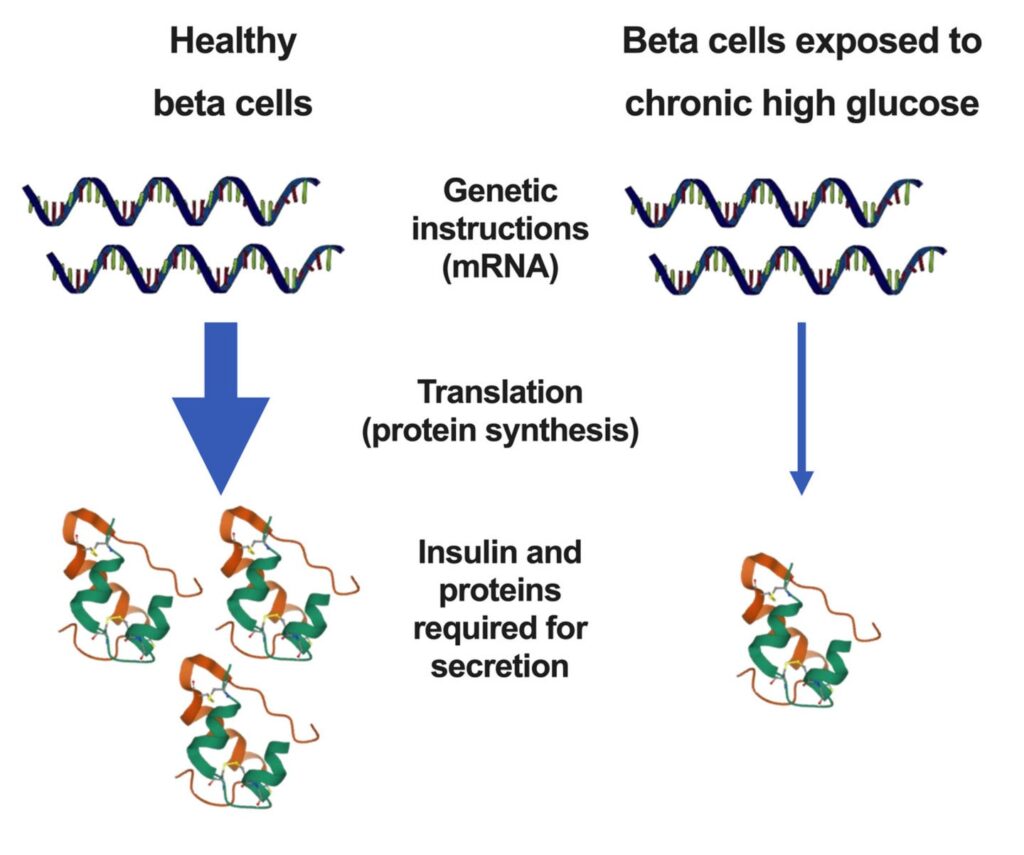Sustained hyperglycemia specifically targets translation of mRNAs for insulin secretion
In a recent publication in The Journal of Clinical Investigation, Abigael Cheruiyot, PhD, of the Schaffer Lab, led the research that uncovered a translational regulatory circuit within pancreatic beta cells that plays a vital role in insulin secretion.
Beta cells located in the pancreas play a crucial role in maintaining healthy blood glucose levels by secreting the hormone insulin. However, during the early stages of diabetes, chronically elevated blood glucose levels can impair the function of beta cells, accelerating the progression of the disease.

In this study, researchers used high-throughput approaches to investigate the coordinated translational regulation under prolonged exposure to elevated glucose levels. The findings revealed that high glucose concentrations undermine the ability of beta cells to release insulin by reducing the translation of genetic instructions into functional proteins responsible for insulin and its secretion into the bloodstream.
This study provides invaluable insights into nutrient-driven translational regulation that alters the abundance of proteins important for insulin secretion in settings of β cell dysfunction. Moreover, blocking this response to elevated sugar levels could represent a new approach to preventing the progression of early-stage diabetes. Furthermore, it holds promise as an effective strategy to enhance the function of beta cell implants aimed at treating diabetes.
Congratulations to Abigael Cheruiyot, Jennifer Hollister-Lock, Brooke Sullivan, Hui Pan, Jonathan M. Dreyfuss, Susan Bonner-Weir, and Jean E. Schaffer.


